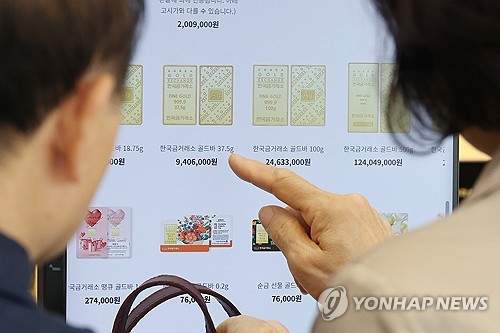(Seoul=Yonhap Infomax) The term "Korea discount" refers to the phenomenon where shares of South Korean listed companies are valued significantly lower than their global peers with similar revenue or earnings profiles. Addressing the Korea discount and ensuring South Korea's equity market is reassessed both quantitatively and qualitatively has become a matter of national interest, drawing attention from regulators and the public alike.
Regardless of political affiliation, every administration has prioritized tackling the Korea discount as a key policy objective, albeit with differing approaches. The Lee Jae-myung government, for example, has championed capital market revitalization by seeking to enhance corporate governance transparency and amend the Commercial Act for this very reason.
This undervaluation is not limited to the domestic stock market. South Korean sovereign and corporate bonds traded overseas—so-called "Korea paper"—also frequently fail to fetch fair value. Even when international credit rating agencies assign the same ratings, Korean issuers often pay higher yields than their foreign counterparts. In effect, South Korean assets are undervalued both at home and abroad.
Another issue is the excessive premium on financial products traded domestically compared to their overseas counterparts. The "kimchi premium"—a term coined for the higher price of cryptocurrencies like Bitcoin on South Korean exchanges during bull markets—is a prime example.
As of 10:00 on the 20th, Bitcoin was trading at $92,457 on overseas exchanges, equivalent to approximately 135.72 million won. However, on domestic exchanges, Bitcoin was priced at around 137.79 million won, about 1.7% higher than abroad. This premium has narrowed recently, but at times it has exceeded 10%.

Last month, as gold prices surged, the premium on gold traded on the Korea Exchange (KRX) reached as high as 20%. A rush of domestic investment into gold, coupled with a divergence between local and international gold prices, drove the domestic premium sharply higher.
The Korean won, South Korea's representative asset, has also shown relative weakness compared to other currencies. The situation is particularly stark when comparing the exchange rate of the stablecoin Tether (USDT) on domestic exchanges with the dollar-won rate in the Seoul foreign exchange market. As of the 20th, USDT—pegged to the US dollar—was trading at around 1,490 won, 20 to 30 won higher than the official dollar-won rate in Seoul.
Such price discrepancies violate the economic principle of the "law of one price," which states that identical goods should trade at the same price in a perfectly competitive market. These gaps inevitably create arbitrage opportunities, where traders buy in the cheaper market and sell in the more expensive one.
The problem is that, unlike foreigners, only domestic investors are forced to pay a premium for the same financial products. If the premium that arises during price surges disappears, local investors face even greater losses. Not only are South Korean financial products undervalued globally, but Korean investors are also forced to pay more than foreigners for the same assets—effectively being treated as "easy marks." This underscores the urgent need to eliminate both the Korea discount and the various premiums prevalent in the domestic market.
While investors must remain rational during market overheating, regulators should also overhaul rules that distort market prices. Barriers to market access and fee structures must be refined. Otherwise, South Korean investors risk remaining at a disadvantage in global financial markets. (Editor-in-Chief)
eco@yna.co.kr
(End)
Copyright © Yonhap Infomax Unauthorized reproduction and redistribution prohibited.

